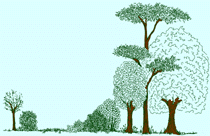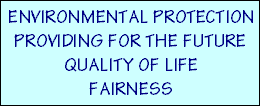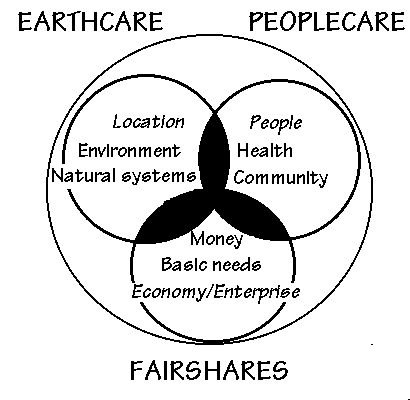 |
The Permaculture View: sustainability through achieving a balance in life |
|
|
As our knowledge grows about the state of our world, its future seems to become increasingly uncertain. The concern is that our individual and collective outlook is maintaining a way of life that will not last for long. But all is not doom and gloom. We can start out ourselves to change the way we view our use of the world, working out ways to be more careful of its resources, and then seeking out others who think in the same way. By making simple choices and then joining our efforts together with others, we begin to put a value on the things that are important for our future. Many people look to nature as an inspiration for how we may be thoughtful in our approach to living in the world. This is not surprising Because often a return to a simple way of life in a rural setting can be very rewarding. Henry Thoreau found this from his experience of living simply in his woodland home in the 1850's. He confidently wrote that "wildness is the preservation of the world".
Aldo Leopold, writing
some 75 years after Thoreau, also shows an
enthusiasm for learning from the natural world, and he gives us more
detail on the lessons he learnt (A Sand County Almanac,
OUP 1949):
More recently, in
1987, the World Commission on Environment and Development (the Bruntland
Commission) confirmed the need for a different outlook and defined the
future Development which meets the needs of the present without compromising the ability of future generations to meet their own needs. This definition brought together four sets of values that would guide a new policy agenda (see box). THE PERMACULTURE VIEW Bill Mollison learnt his lessons from the natural world some 50 years after Leopold, but there is a striking similarity in the conclusions that each came to - as there often is from people who have drawn their inspiration from wild nature. Mollison recognised that the outcome of decisions and choices can make the difference as to whether we can sustain our living or if we are borrowing from the future. Permaculture is his description of the things he observed, and Permaculture Design is a system that can provide solutions and help to make the right choices. Leopold talked in terms of a Land Ethic, a sharing of values for a collective existence that has community and co-operation at its heart. Mollison also recognised that co-operation and not competition were key, but there also needs to be a fundamental commitment first from all of ourselves before we could make this approach work. Mollison called this the prime imperative: Take RESPONSIBILITY for your own existence and that of your children You can look at this as deciding to become more self-reliant while accepting responsibility for the consequences of your actions. It should not be confused with becoming self-sufficient where you may break any link with other people and which could lead to the cult of the individual) The need for co-operation, and not competition, is a call for good social organisation, with people working harmoniously together in communities. It is about individuals taking responsibility, but as we take on personal responsibility we should also think about taking responsibility within our community through such things as providing leadership, contributing to group effort or providing education through our teaching.
Our behaviour within
a supportive community determines how we treat ourselves, our location,
and the people around us. We make choices, all of which have impact or
consequence. Permaculture asks of us that our choices should be guided by
an ethical framework - a type of land and community ethic - if we are to
learn to tread lightly in this world. It provides three ethics to form
that framework and the fact that these ethics have It is important for you to arrive at your own personal understanding of the ethics. Fairshares is a recent shorthand for Mollison's original ethic of setting limits to consumption and population. Sharing out more of the same pie to an increasingly larger number of people may be fair, but it will not sustain our lives indefinitely. We should recognise that our giving attention to care of people and to fairshares will help guide us in our care of the earth, and this conscious way of conducting our life will soon become second nature. The balance that we seek could thus be summed up as the EFFECTIVE and VALUED use of RESOURCES - which includes PEOPLE and MONEY as well as NATURAL MATERIALS. Mark Fisher - Permaculture Design course handout notes www.self-willed-land.org.uk mark.fisher@self-willed-land.org.uk |

 similarities with the sets of values above (though they were thought of
before) shows how robust and timeless they are. For simplicity, they are
depicted in a model as three circles which, when they overlap (integrate)
show how sustainability could be achieved. Thus the balance we wish for
our lives comes from a balance of the attention we pay in roughly equal
measure to all three ethics.
similarities with the sets of values above (though they were thought of
before) shows how robust and timeless they are. For simplicity, they are
depicted in a model as three circles which, when they overlap (integrate)
show how sustainability could be achieved. Thus the balance we wish for
our lives comes from a balance of the attention we pay in roughly equal
measure to all three ethics.